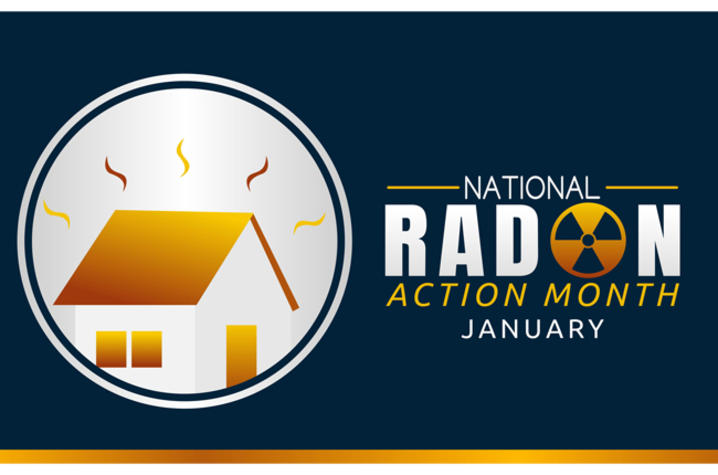What to Know About Radon in Your Home

The University of Kentucky Public Relations & Strategic Communications Office provides a weekly health column available for use and reprint by news media. This week's column is by Ellen J. Hahn, PhD, director of BREATHE at the University of Kentucky College of Nursing and director of UK Center for Appalachian Research in Environmental Sciences (UK-CARES).
LEXINGTON, Ky. (Jan. 19, 2021) — January is National Radon Action Month, a time to raise awareness of the health effects of radon and take action to lower your risk. Radon is a naturally occurring radioactive gas that seeps up from the ground and into homes, schools, worksites, and other indoor spaces through cracks in the foundation or basement or around pipes. It is colorless, tasteless and odorless and can cause lung cancer; you would have no way of knowing if it has infiltrated your home unless you test for it. Yet, few people test for the radioactive gas.
Kentucky leads the nation in the number of new cases and deaths from lung cancer. Though the use of tobacco contributes to the majority of lung cancer cases, radon exposure is the second leading cause, accounting for 10 to 15 percent of lung cancer cases. Breathing radon is a known cause of lung cancer in nonsmokers. However, people exposed to both radon and tobacco smoke are 10 times more likely to develop lung cancer. In fact, the lifetime risk of radon-induced lung cancer is 62 per 1,000 ever smokers compared to 7 per 1,000 people who have never smoked.
Listen to Kentucky lung cancer survivors speak about how anyone can get lung cancer, United Voices – Kentucky, a video written and produced by Breath of Hope KY.
In outdoor spaces, radon is present in very low concentrations, but when it is trapped inside, the radioactive gas can accumulate and cause harm. The risk of lung cancer increases when radon is present in the home and in other indoor spaces. Radon attaches to smoke and dust and can be more easily inhaled. The combination of high rates of tobacco use and exposure to tobacco smoke in Kentucky, the prevalence of radon and low testing rates put Kentucky residents at higher risk for lung cancer.
Testing for radon is free and easy. A short-term test kit can be requested from your local health department or through the Kentucky Radon Program at the Kentucky Department for Public Health. There is no safe level of radon, and if the test shows a radon level of four or more picocuries per liter (pCi/L), the EPA recommends having a radon mitigation system installed in your home by a certified radon mitigation company.
The Kentucky Radon Program provides radon test kits free of charge to Kentucky residents. You can request a free test kit by completing the form on the Free Radon Test Kit Offer website. If your health department is on the radon program list, you may request a free test kit from your health department.
For more information about making your home and community a healthier place to breathe, go to https://www.uky.edu/breathe/. Check out our many radon resources.
As the state’s flagship, land-grant institution, the University of Kentucky exists to advance the Commonwealth. We do that by preparing the next generation of leaders — placing students at the heart of everything we do — and transforming the lives of Kentuckians through education, research and creative work, service and health care. We pride ourselves on being a catalyst for breakthroughs and a force for healing, a place where ingenuity unfolds. It's all made possible by our people — visionaries, disruptors and pioneers — who make up 200 academic programs, a $476.5 million research and development enterprise and a world-class medical center, all on one campus.




